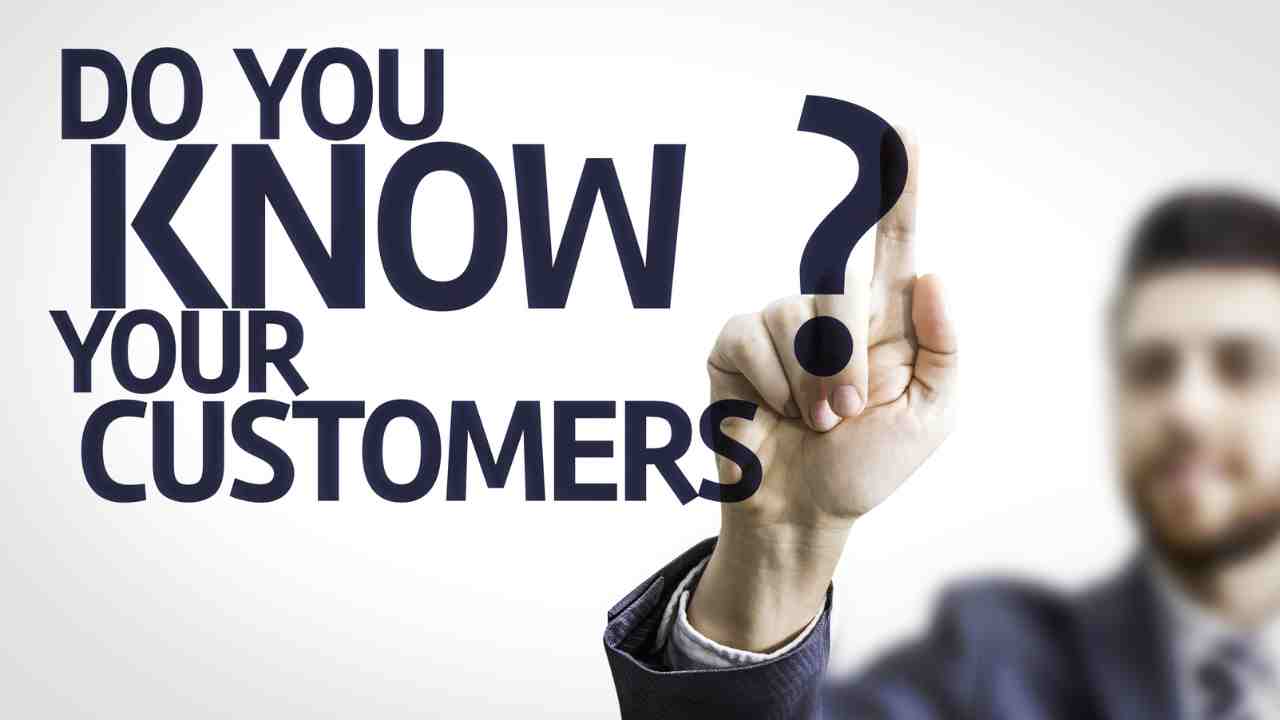What is a CRM in Business

A Customer Relationship Management (CRM) system is a powerful tool that helps businesses manage their interactions and relationships with customers. It is a software solution that enables companies to streamline their sales, marketing, and customer service processes, ultimately leading to improved customer satisfaction and increased revenue.
The Importance of CRM in Business
CRM systems have become an essential part of modern business operations. Here are some key reasons why CRM is important:
- Centralized Customer Data: A CRM system allows businesses to store all customer information in one place, making it easily accessible to employees across different departments. This centralized database ensures that everyone in the organization has access to accurate and up-to-date customer information, enabling them to provide personalized and efficient service.
- Improved Customer Service: With a CRM system, businesses can track customer interactions, preferences, and purchase history. This information helps customer service representatives provide better support and resolve issues more effectively. By understanding customer needs and preferences, businesses can also anticipate their requirements and proactively address them.
- Enhanced Sales and Marketing: CRM systems provide valuable insights into customer behavior and buying patterns. By analyzing this data, businesses can identify potential leads, target specific customer segments, and create personalized marketing campaigns. CRM also helps sales teams track their leads, manage their pipelines, and close deals more efficiently.
- Increased Efficiency and Productivity: CRM systems automate various manual tasks, such as data entry, lead management, and reporting. By eliminating repetitive and time-consuming activities, employees can focus on more strategic and value-added tasks. This leads to increased productivity and efficiency across the organization.
- Better Collaboration: CRM systems facilitate collaboration and communication among team members. Employees can share customer information, notes, and tasks, ensuring that everyone is on the same page. This improves teamwork, reduces duplication of efforts, and enables seamless handoffs between departments.
Types of CRM Systems
There are different types of CRM systems available, each catering to specific business needs. Here are the three main types:
Operational CRM
Operational CRM focuses on automating and improving customer-facing processes. It includes functionalities such as sales force automation, marketing automation, and customer service automation. Operational CRM systems help businesses streamline their day-to-day operations and provide a seamless customer experience.
Analytical CRM
Analytical CRM focuses on analyzing customer data to gain insights and make informed business decisions. It involves data mining, predictive modeling, and customer segmentation. Analytical CRM systems help businesses understand customer behavior, identify trends, and develop targeted marketing strategies.
Collaborative CRM
Collaborative CRM focuses on facilitating communication and collaboration between different departments and external stakeholders. It includes functionalities such as email integration, document sharing, and social media integration. Collaborative CRM systems help businesses improve internal communication, enhance customer engagement, and build stronger relationships.
Real-World Examples of CRM Implementation
Many successful businesses have implemented CRM systems to drive growth and improve customer satisfaction. Here are a few examples:
Amazon
Amazon, the world’s largest online retailer, uses CRM extensively to personalize the customer experience. By analyzing customer data, Amazon recommends products based on past purchases and browsing history. This personalized approach has contributed to Amazon’s success and customer loyalty.
Salesforce
Salesforce, a leading CRM software provider, uses its own CRM system to manage its sales and customer service processes. The company’s success is a testament to the effectiveness of CRM in driving sales and improving customer relationships.
Zappos
Zappos, an online shoe and clothing retailer, is known for its exceptional customer service. The company uses CRM to track customer interactions and preferences, enabling its customer service representatives to provide personalized and efficient support. Zappos’ commitment to customer satisfaction has helped it build a loyal customer base.
Statistics on CRM Adoption and Benefits
Here are some statistics that highlight the importance and benefits of CRM in business:
- According to Salesforce, CRM can increase sales by up to 29%, sales productivity by up to 34%, and sales forecast accuracy by up to 42%.
- A study by Nucleus Research found that for every dollar spent on CRM, businesses can expect an average return of $8.71.
- According to SuperOffice, 74% of businesses using CRM report improved customer relationships, while 65% report increased sales revenue.
- A survey by Capterra revealed that 47% of CRM users saw an improvement in customer retention rates.
- Research by Aberdeen Group found that companies with effective CRM strategies achieved an average customer retention rate of 81%, compared to 66% for companies without CRM.
Get Your FREE 14-Day Trial and Take Your Business To The Next Level with an All-In-One Sales and Marketing Platform for businesses, agencies and marketers.
A CRM system is a valuable tool for businesses of all sizes. It helps streamline sales, marketing, and customer service processes, leading to improved customer satisfaction and increased revenue. By centralizing customer data, businesses can provide personalized and efficient service. CRM also enables better collaboration, enhances sales and marketing efforts, and increases overall efficiency and productivity. Real-world examples and statistics demonstrate the positive impact of CRM on business success. To leverage the benefits of CRM, businesses should consider implementing a reliable CRM system like SaasExpert.ca – Your All-In-One Sales and Marketing Platform for small businesses, agency owners, and marketers.
Learn more about “How to Overcome the Challenges of CRM Software” right here.
Frequently asked questions about What is a CRM in Business.

Why is CRM so vital for businesses today, and how can it redefine success? 🚀
CRM, which stands for Customer Relationship Management, has become the very backbone of modern businesses. In our fast-paced, digital age, personalization and swift responses aren’t just luxuries, they’re expectations. CRM systems help companies build, nurture, and manage relationships with their customers at scale. 🤝
One can argue that businesses have always been about relationships. However, with the influx of data available today, manually keeping track of every interaction or transaction becomes impractical. That’s where CRM shines. 🌟
By centralizing customer data, CRM systems offer a holistic view of each customer, allowing businesses to:
Personalize Marketing Campaigns: Understand buying behaviors, preferences, and history, and craft targeted messages, thus increasing conversion rates.
Enhance Customer Service: With instant access to customer history, service reps can handle inquiries or complaints more efficiently, improving customer satisfaction.
Streamline Sales Processes: Sales teams can track leads, manage follow-ups, and close deals faster with an organized pipeline.
Optimize Business Operations: By integrating other business tools, CRMs can help in inventory management, task automation, and more.
For businesses, a CRM isn’t just another tool; it’s the compass that guides them towards enhanced relationships and, consequently, growth and success. 🌱➡️🌳
How does a CRM system differ from traditional methods of customer management? 📜🆚💻
Ah, the age-old debate! The juxtaposition of traditional and modern methods has always garnered attention. While traditional customer management relied on physical records, spreadsheets, and memory, CRM is the epitome of digital efficiency.
Here’s a breakdown:
Centralization: Traditional methods often had information scattered in various files, registers, or even personal notebooks. CRM brings everything together, offering a unified view of each customer. 🌐
Accessibility: Remember sifting through files or Excel sheets to find one detail? With CRM, a few clicks give you all the information you need. Plus, many CRM platforms are cloud-based, meaning you can access data anywhere, anytime. ☁️
Scalability: As businesses grow, traditional methods become cumbersome. CRM systems scale with the business, accommodating more data and offering advanced features as needed.
Automation: A prime differentiator! CRM systems can automate tasks like follow-ups, reminders, and even some aspects of marketing. Time saved here can be utilized for strategy and growth. ⏳➡️📈
Data Analysis: While traditional methods can store data, analyzing that data for patterns and insights is painstaking. CRM tools often come with analytics features that turn raw data into actionable insights.
While the charm of traditional methods and the tangible feel of paper has its nostalgic value, in a fast-paced world, the efficiency, scalability, and depth that CRM systems offer are unparalleled. 💼🚀
How do businesses ensure their CRM system aligns with their goals? 🎯
Just like a ship needs its compass to be aligned to its destination, businesses need their CRM system to be in sync with their objectives.
Needs Assessment: Before diving into a CRM solution, businesses should assess their needs. Is the primary need sales tracking, customer service, marketing automation, or a combination? Understanding this shapes the CRM choice and setup. 🧭
Customization: Many CRM systems offer customization. Fields, modules, and even interfaces can be tailored to reflect business processes and priorities.
Training: A system is only as good as its users. Ensure your team is thoroughly trained, not just on the tool’s functionalities, but also on how it ties back to the company’s goals. 🧑🏫
Regular Review: As businesses evolve, so do their goals. Periodic reviews of how the CRM aligns with current objectives ensure it remains a catalyst for growth, not just a record-keeping tool.
A well-aligned CRM is like the wind beneath a business’s wings; it doesn’t just store data, it propels the business towards its goals. 🌬️🕊️
What features should a business look for in a CRM solution? 🔍
With a plethora of CRM solutions available, choosing one can feel like finding a needle in a haystack. Here are some universally essential features:
Contact Management: A central database that stores all customer-related information.
Task Automation: Features that streamline repetitive tasks, enhancing efficiency.
Lead Management: Tools that help in tracking potential customers and their interactions.
Reporting and Analytics: Visualization tools that convert data into insights, aiding in decision-making.
Mobile Access: In our on-the-go world, having a CRM accessible via mobile is a boon. 📱
Integration Capabilities: The ability to integrate with other business tools, enhancing functionality and centralization.
It’s crucial to remember that the best CRM is the one that aligns with a business’s specific needs, industry, and scale. Sometimes, less is more; a simple, user-friendly interface might trump a feature-heavy one. 🎨🖌️
Is a CRM system only suitable for large businesses or can small businesses benefit too? 🏢🆚🏠
A widespread misconception! Many believe CRM systems are the territory of large corporations. However, CRM tools cater to businesses of all sizes.
For small businesses, CRM can:
Enhance Efficiency: Limited resources can be utilized better with automation and organization.
Facilitate Growth: As a business grows, managing relationships manually becomes untenable. Having a CRM system from the onset makes scaling smoother.
Offer Competitive Edge: In a competitive market, offering personalized services or swift responses can set a small business apart.
Think of CRM as a Swiss army knife. 🇨🇭🔪 Whether you’re setting up a camp (small business) or building a shelter (large corporation), it has tools suitable for all needs.
In the vast ocean of business tools and technologies, CRM stands out as a lighthouse, guiding businesses towards sustained relationships and success.
Whether you’re just embarking on your CRM journey or navigating its waves, understanding its essence is the first step towards mastery. 🚢🌊🔭







